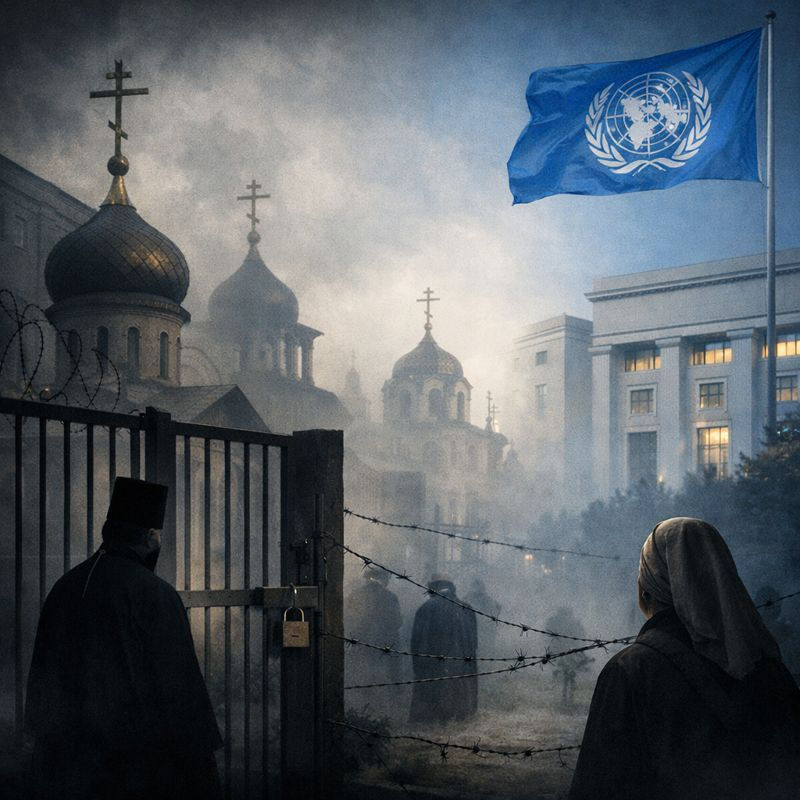Journalism Under Threat – The States’ Failure to Safeguard Media Freedom in a Volatile Environment
- JPTi

- May 2, 2024
- 3 min read
Updated: Mar 18, 2025
On 6 October 2022, the United Nations Human Rights Council General Assembly adopted Resolution 51/L.14 on ‘Safety of Journalists.’ This document reaffirms the importance of the Windhoek +30 Declaration – drafted at the UNESCO World Press Freedom Day in Windhoek, Namibia, in 2021. It urges states to do their utmost to deter violence, threats, and intimidation against journalists, bloggers, and other media professionals. According to UNESCO’s Deputy Director General for Communication and Information, Tawik Jelassi, the adoption of the new Resolution constitutes a milestone in the ongoing process to create a safer environment for journalists, where freedom of expression and opinion are adequately protected (UNESCO 2023).
The relevance of the Resolution lies in a clear trend of increasing intimidation and persecution against journalists worldwide. Their rights are ever more threatened within their own country (Watts 2024), with governments not only failing to protect the so-called ‘fourth state,’ but actively seeking to suppress critical voices under the pretext of national security and public order. By not upholding international human rights standards and practices, States deliberately favour the creation of a climate of insecurity and fear that aims to nip any journalistic attempt to report the truth in the bud, no matter how harsh it may be.
At the time the General Assembly drafted the Resolution, RSF (2022) reported that both media polarisation and the spread of misinformation were escalating within and among democratic societies. According to their report, democracies were increasingly weakened by the asymmetry between open societies and autocratic regimes controlling their media. Looking at the World Press Freedom Index, however, an even more troubling picture emerges. In fact, as documented by RSF (2024), press freedom is severely threatened worldwide by the very actors who should be its guarantors, namely political authorities. Among the five indicators comprising this index, including political, legal, economic, sociocultural, and safety factors, the political sphere has witnessed the most pronounced decline. Within a highly volatile environment marked by rampant armed conflicts and tensions, journalism has become entangled with political agendas, serving as an instrument of propaganda.
It has become evident that the hope placed in the UN’s 2022 Resolution on the “Safety of Journalists” is gradually being crushed, as the restrictions on media freedoms continue to rise alarmingly. In the wake of the recent conflicts in Europe and the Middle East, opinions have been polarised as political interests invade the media threatening not only journalistic integrity but also freedom of speech altogether. Under the guise of national security legislation, Western governments have tried to silence dissenting voices by using Strategic Lawsuits Against Public Participation (SLAPPs), censoring journalistic discourse that does not align with the official governmental narrative. As a result, journalists have faced arbitrary detentions, physical and verbal assault, accusations of defamation, and, in extreme cases, charges of terrorism.
In times of crisis, the integrity of the media and the protection of journalists assume critical importance, despite the associated risks and challenges. As infringements upon freedom of speech become more frequent in politically turbulent landscapes, with media turning into weapons of propaganda, uncensored journalism constitutes a remedy to the spread of misinformation. It is therefore imperative to prioritise transparency, strengthen protections for journalists and media workers, and ensure that journalism can continue to fulfil its role as a vessel for truth and freedom of expression.
Sources:
Reporters Without Borders (RSF) (2022): RSF’s 2022 World Press Freedom Index: a new era of polarisation. RSF (https://rsf.org/en/rsf-s-2022-world-press-freedom-index-new-era-polarisation [11.11.2024]).
Reporters Without Borders (RSF) (2024): 2024 World Press Freedom Index – journalism under political pressure. RSF (https://rsf.org/en/2024-world-press-freedom-index-journalism-under-political-pressure [11.11.2024]).
United Nations Educational, Scientific and Cultural Organization (UNESCO) (2023): UN Human Rights Council Resolution on Safety of Journalists welcomes the Windhoek+30 Declaration. UNESCO (https://www.unesco.org/en/articles/un-human-rights-council-resolution-safety-journalists-welcomes-windhoek30-declaration [11.11.2024]).
Watts, Jonathan (2024): Across the world, journalists are under threat for sharing the truth. The Guardian (https://www.theguardian.com/global-development/2024/apr/30/across-the-world-journalists-are-under-threat-for-sharing-the-truth [11.11.2024]).
Picture:
Office of the United Nations High Commissioner for Human Rights (URL): OHCHR and the safety of journalists and the issue of impunity. OHCHR (https://www.ohchr.org/en/safety-of-journalists [15.11.2024]).







